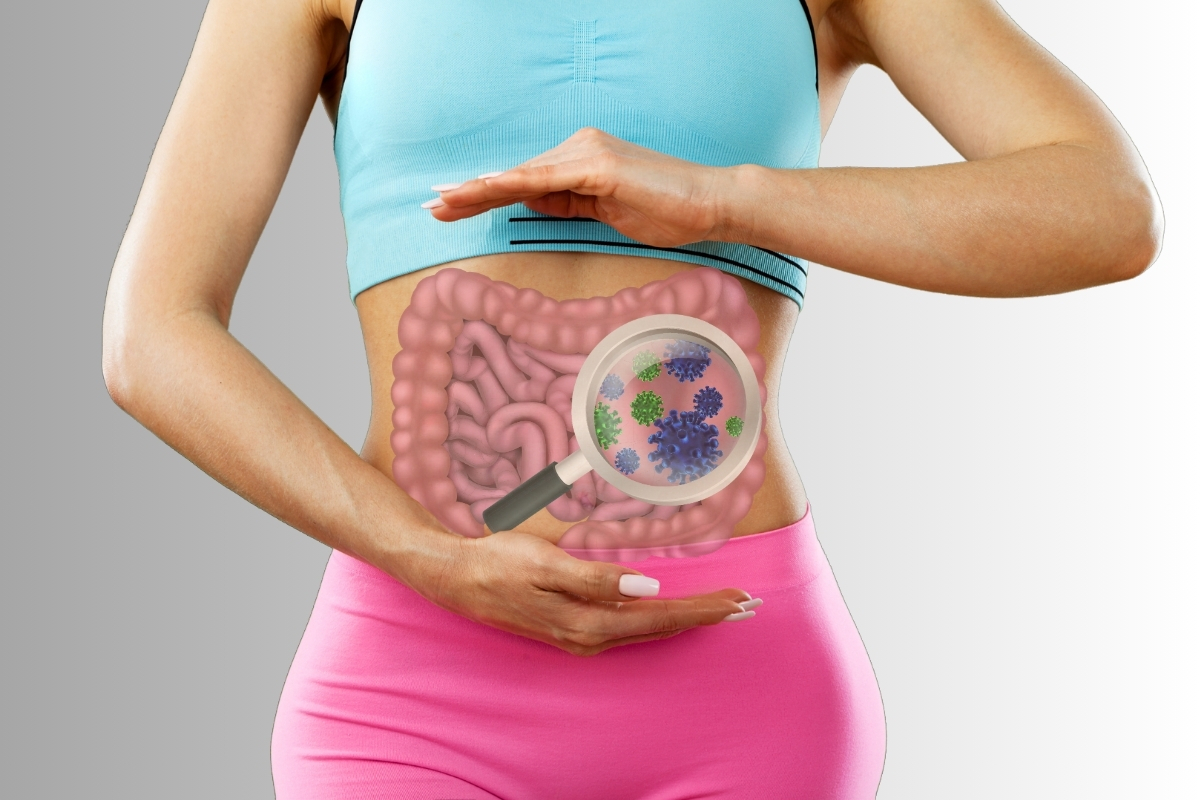Today, I want to share my insights on a topic that is gaining increasing importance in our understanding of overall health and well-being: how to starve bad gut bacteria.
Our gut microbiome, a complex and dynamic ecosystem within us, plays a pivotal role in not just our digestive health, but also our mental, immune, and overall physical health.
Discussing risks associated with the gut microbiome can be challenging, but with the right knowledge and strategies, it’s possible to promote a healthier gut environment. Some prominent probiotics for women can be particularly helpful in this case.
The key focus points:
- The crucial role of the gut microbiome in not just digestive health, but also mental, immune, and overall physical health.
- Strategies to minimize the growth of harmful bacteria, including the use of probiotics, careful management of antibiotics, dietary modifications, and controlled fasting periods.
- How dietary choices significantly influence the microbiome.
Keep reading because in the next section I will provide you with everything relevant regarding how to starve a bad gut bacteria.
Strategies to Starve Bad Gut Bacteria
Starving bad gut bacteria is essential for your overall well-being, and one key aspect of this is managing the levels of harmful bacteria spreading around your body. Various strategies can be employed to minimize the growth of these detrimental microbes and promote a balanced and healthy environment.
| Strategy | Description |
|---|---|
| Probiotics | Beneficial bacteria in foods and supplements that suppress harmful gut bacteria and support overall gut health. |
| Judicious Antibiotic Use | Responsible use of antibiotics to prevent the killing of beneficial gut bacteria and avoid dysbiosis. |
| Dietary Changes | Adopting diets like low FODMAP for IBS relief or the Mediterranean diet for increased microbiome diversity. |
| Fasting and Calorie Restriction | Improving gut microbiome balance through fasting or reduced calorie intake, giving the digestive system a rest. |
Factors Influencing Gut Microbiome Balance
The food we consume plays a vital role in shaping our gut microbiome. Daily dietary choices can directly affect the composition and functionality of a bacteria.
Diet’s Impact on Gut Microbiome
The types of food we eat are instrumental in shaping the microbiome. Our dietary choices have a direct influence on the types and functions of bacteria. High consumption of processed foods and sugars, for instance, can encourage the proliferation of harmful bacteria, resulting in an imbalance known as dysbiosis.
Beneficial Diets
Diets that are high in fiber contribute to a more diverse and healthy gut microbiome. They help in reducing the numbers of harmful bacteria, thereby promoting a balanced gut environment.
Age and Microbiome Diversity
As we age, there’s a natural decline in the diversity of our gut microbiome. This change can have significant implications for our overall health, affecting various bodily functions.
Stress
Both physical and emotional stress tend to have a profound impact on the balance of the gut microbiome. Stress can often shift the balance in favor of opportunistic, harmful bacteria, disrupting the flora.
Infections and Antibiotics
Infections, especially those that necessitate the use of antibiotics, can lead to significant disruptions in the gut microbiome. Antibiotic treatments, while necessary for combating infections, can sometimes cause short-term or even long-term imbalances in the gut flora.
Even though probiotics can cause imbalance, they can also be quite helpful in this case.
Still, it is important to say that consuming antibiotics and probiotics at the same time is not always advisable, regardless of the condition.
Supplements and Herbal Antimicrobials
Probiotic supplements play a significant role in the management and maintenance of a healthy gut microbiome. These supplements typically contain beneficial strains of bacteria such as Lactobacillus and Bifidobacterium, which are known for their positive effects on gut health.
These probiotics work by enhancing the population of good bacteria in the gut, especially important in situations where the balance of flora may be disrupted.
- Post-Antibiotic Recovery: After a course of antibiotics, the gut microbiome often suffers a decline in beneficial bacteria. Probiotic supplements are particularly effective in this context, as they help replenish the stomach with good bacteria, aiding in the recovery.
- Stress Management: During periods of stress, whether physical or emotional, the gut microbiome can become unbalanced. Probiotic supplements can play a crucial role in stabilizing the environment during these times.
- Probiotics for Women: There is growing interest in the use of specific probiotic strains for women’s health. Certain probiotics can address health issues unique to women, including those related to the vaginal microbiome and urinary tract. Of course, pregnant women need to address additional factors.
Herbal antimicrobials offer a natural and effective way to support the balance. Substances like oregano and berberine are known for their antimicrobial properties, which can be beneficial in managing the flora.
- Selective Inhibition: Unlike broad-spectrum antibiotics, herbal antimicrobials can selectively target harmful bacteria. This selective action helps in reducing the population of bad bacteria while maintaining or even boosting the levels of beneficial bacteria.
- Complementary to Probiotics: Herbal antimicrobials can be used in conjunction with probiotic supplements. While the antimicrobials reduce harmful bacteria, the probiotics can replenish and maintain the population of good bacteria, creating a synergistic effect for optimal health.
- Natural Approach: For those seeking a more natural route to health, herbal antimicrobials provide an appealing option. They are derived from natural sources and are generally well-tolerated, making them a suitable choice for long-term management of gut health.
Understanding Dysbiosis
Dysbiosis, a term used to describe the imbalance, is a condition that can have far-reaching effects on human health. This imbalance is not just a minor inconvenience; it is associated with a wide spectrum of health issues, both within the digestive system and beyond.
Digestive and Non-Digestive Health Issues
Dysbiosis is closely linked to various gastrointestinal conditions such as Irritable Bowel Syndrome (IBS) and Crohn’s disease. In these disorders, the imbalance can exacerbate symptoms like abdominal pain, bloating, and irregular bowel movements.
The gut-brain axis, a communication network that links the gut and the brain, plays a critical role in mental health. Dysbiosis can affect this connection, potentially leading to or worsening mental health conditions such as anxiety, depression, and mood disorders. It is important to say that probiotics can help with mental health as well.
Influence on Immune System
Microbiomes are pivotal in regulating the body’s immune system. Beneficial bacteria interact with immune cells, playing a role in their development and function. This interaction is crucial for maintaining an appropriate immune response to various stimuli.
When the balance is disrupted, it can lead to immune system malfunctions. Dysbiosis can cause an overactive immune response, leading to inflammation and autoimmune disorders. Conversely, an underactive immune response can result from dysbiosis, making the body more susceptible to infections and illnesses.
Broader Health Complications
Beyond the immediate effects on gut health and immunity, dysbiosis is increasingly recognized as a contributing factor in several chronic diseases. This includes conditions like obesity, type 2 diabetes, and cardiovascular diseases, where an imbalanced microbiome can play a role in disease progression.
The gut microbiome is essential in nutrient absorption and metabolism. Dysbiosis can disrupt these processes, leading to nutritional deficiencies and metabolic issues.
The Need for a Holistic Approach
Given the complex nature of dysbiosis and its wide-ranging impact on health, a holistic approach is crucial in addressing this condition. This includes dietary interventions, lifestyle changes, and possibly medical treatments aimed at restoring the balance of the gut microbiome.
Recognizing the signs of dysbiosis and seeking appropriate care can be key steps in maintaining overall health and well-being.
Personalized Approach
Given the complexity of the gut microbiome and its individual variability, a personalized approach is recommended. Consulting with registered practitioners can help tailor dietary and supplement strategies to individual needs, ensuring more effective and sustainable health management.
Each person’s microbiome is unique, influenced by genetics, lifestyle, and environmental factors. Hence, strategies for maintaining health, including the use of probiotics for women, should be personalized. This approach not only addresses existing issues but also helps in preventive health care.
Maintaining a balanced microbiome is crucial for overall health and well-being. Strategies like adopting a Mediterranean diet, using probiotics and herbal antimicrobials, and considering personalized dietary changes can help in starving bad gut bacteria and promoting a healthy gut environment.
Regular consultation with healthcare professionals, especially for tailored approaches like probiotics for women, ensures that individuals can effectively manage their gut health in a way that is best suited to their unique needs.
FAQs
How can I detox my gut in 3 days?
Detoxing your gut in 3 days involves eating a diet rich in whole foods, such as fruits, vegetables, and whole grains, and avoiding processed foods, sugar, and alcohol.
What is the 7 day gut reset?
The 7 day gut reset is a dietary plan designed to improve health over the course of a week. It typically involves eating nutrient-rich, fiber-dense foods, eliminating processed foods, and incorporating probiotics and prebiotics.
Does coffee destroy gut bacteria?
Coffee does not destroy gut bacteria. In fact, some studies suggest that moderate coffee consumption can be beneficial for the microbiome due to its high levels of antioxidants and other beneficial compounds.
Can honey cure Helicobacter pylori?
Honey has antimicrobial properties and some studies have shown that it can inhibit the growth of Helicobacter pylori, a bacteria linked to stomach ulcers. However, honey alone is unlikely to cure an H. pylori infection.
Closing Thoughts
I hope this guide has provided you with valuable insights into managing your gut health effectively. Starving bad gut bacteria and promoting a balanced microbiome is a multifaceted approach involving careful dietary choices, probiotics, mindful use of antibiotics, and natural supplements.
Remember, each case is unique, so it’s important to find the right balance that works for you. I encourage you to continue exploring these strategies and consult healthcare professionals for personalized advice.
Related Posts:
- What Does Dreaming of Cockroaches Mean? - A Sign of…
- Depression vs. Manic Depression: Battle of the Moods
- Drinking Yogi VS Tiesta Tea in 2024 - A Wild Battle!
- Illustrating Mental Illness to Build Awareness:…
- Get Rid of Lip Pimples - Swollen, Big, Painful,…
- How Do You Fix a Leaking Gut: Gut Healing Simplified

















